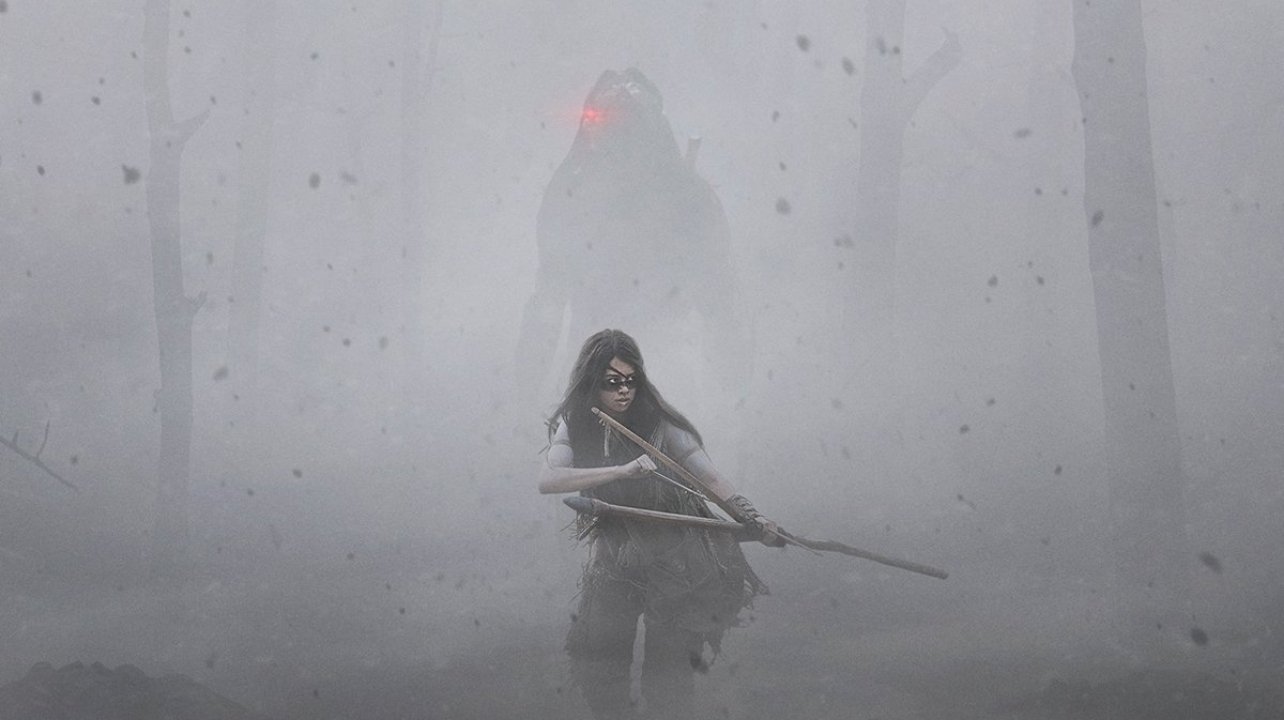It has been well-established that sci-fi horror does a great job of mirroring our societal fears, anxieties, and obsessions. Right from the early adaptations of Mary Shelley’s Frankenstein – the novel itself is widely regarded as the genesis of sci-fi horror – all the way to the modern era’s evolution of vampires, zombies, monsters, murderous robots, serial killers, and whatnot, the genre has done an exemplary job reflecting the fears of our time with uncanny accuracy. So, what about sci-fi horror films from 2022? Did something change?

The short answer is: No. But let’s first talk about some context here. The jump from Frankenstein to Prometheus didn’t just happen. In the aftermath of World War II, or more precisely the use of nuclear bombs and the subsequent exposure to radioactive materials, sci-fi horror took a big important step as the movie industry became fixated on the uncertain future of humanity. And then the Cold War, filled with everything from arms race to space race, happened. Despite the all-too-real concerns about the possibility of another great war between the promise of American democracy and the threat of Soviet’s hardened communism, filmmakers did what they could to deliver messages of peace and friendly warnings while offering quality motion pictures. This applied to just about every genre; sci-fi horror was no exception.
The notion of unstoppable technological advances and the business with space exploration fueled the genre even more intensely than before. You could almost say it welcomed the image of a future overshadowed by nuclear anxiety and the mystery of the extraterrestrials. In fact, post-WW2 sci-fi horror often explored the themes of technologies gone wrong and murderous Martians, usually set on a dystopian Earth or apocalyptic time.
Films like The Day the Earth Stood Still (1951), Creature from the Black Lagoon (1954), and Invasion of the Body Snatchers (1956) make for fine examples of the genre’s classics. We call them classics now, but back then they were as relevant as ever to the issues of the day. With sci-fi horror, everything was about monsters and abominations created by failed experiments or aliens trying to kill all humans and take over the Earth, with not-so-subtle references to anti-communism ideas. Those classic sci-fi horror films were shaped by the collective social anxieties of the ongoing Cold War, the fear of Soviet infiltration, and the ugly effects of science, blended together to make some speculative, terrifying, memorable spectacles.
Nothing really changed in 2022 in the sense that sci-fi horror was still heavily driven by social issues of the day. The only things that changed were the issues themselves. If sci-fi horror in the 1950s had been about radioactive mutants and Soviet spies, the 2022 version talked about artificial intelligence, COVID-19, and social injustices.
As for the storytelling itself, you cannot overstate the influence of Netflix’s Stranger Things; for several seasons, this TV show about kids fighting supernatural oddities has reinvigorated the interest in the old-school cinematic look. But thankfully not as old as the 1950s because the events in Stranger Things are set in the 1980s. Besides the old-school aesthetics, Stranger Things also re-popularize elements of comedy and romance in sci-fi horror. It’s not the first series to use fusion of genres, but certainly one of the most popular.
Two of the most celebrated sci-fi horror films from 2022 included Nope and Prey; the former is set in Western-style narrative infused with extraterrestrial villains, whereas the latter brings back the story of Predator to the days when it contacted Native Americans. In both films, you’d easily find some elements taken directly from Stranger Things’ playbook. If you replace every supernatural phenomenon with an extraterrestrial mystery, you’ll find even more similarities.
However, modern sci-fi horror isn’t afraid to delve into specific, and often sensitive, social issues. In Prey, for example, it’s nice to see that a young woman played the role of the main protagonist in an era where the nation remains somewhat indecisive about feminism. Nope, once again encourages discussion about racism in the United States. Hollywood (and the American film industry) has been pretty progressive, politically. It’s safe to say that the next generation of sci-fi horror films will probably keep its extent of progressiveness with even more thought-provoking social commentaries.
We think the realms of science fiction and horror have long been dancing around each other – like a couple of twisted yet perfectly compatible best friends – to create unique narratives capable of delivering an utterly enjoyable style of storytelling that blurs the line between macabre and bewilderment. It’s a fascinating blend where you may discover otherworldly territories filled with terrors, apparitions, eerily quiet spaceships, shadowy creatures, aliens, and fear of the unknown merged into an overwhelming excitement. Sci-fi horror continued the trend in 2022, but noticeably with explicit social commentary on our increasing dependence on technology, AI-related issues, over-fascinations with extraterrestrial lives, and political divide.
What is the most thought-provoking sci-fi horror film you’ve watched? Can you name any animated sci-fi horror movies? We’d love to hear from you.
Other Things You Might Want to Know
Recommended sci-fi horror for your next Halloween:
- Event Horizon (1997)
- Annihilation (2018)
- Possessor (2020)
- The Invisible Man (2020)
- The Endless (2017)
- Splice (2009)
- Pulse (2001)
- The Platform (2019)
Ten great sci-fi horror films, according to the BFI:
- God Told Me To (1976)
- Demon Seed (1977)
- The Fury (1978)
- Alien (1979)
- The Brood (1979)
- Re-Animator (1985)
- Lifeforce (1985)
- Tetsuo (1989)
- Resident Evil: Retribution (2012)
- Under the Skin (2013)
Are zombies sci-fi or horror?
It always depends on the narrative. Zombies can be strictly horror, such as in the original Night of the Living Dead; but you can consider them pretty much sci-fi from the perspective of World War Z.
Check out other articles by month:







